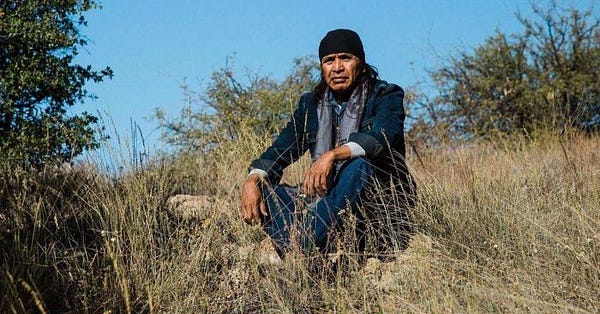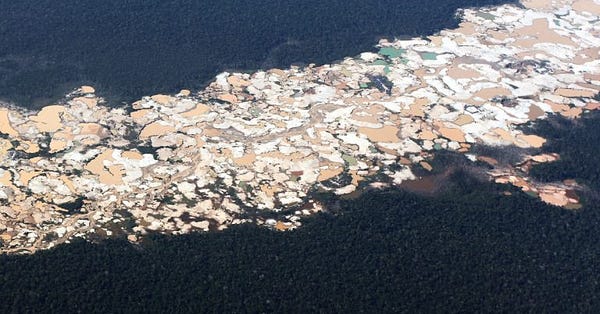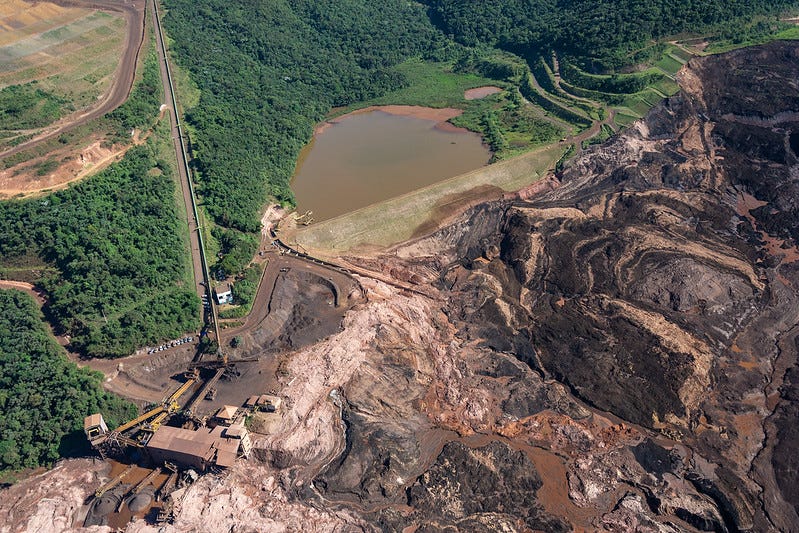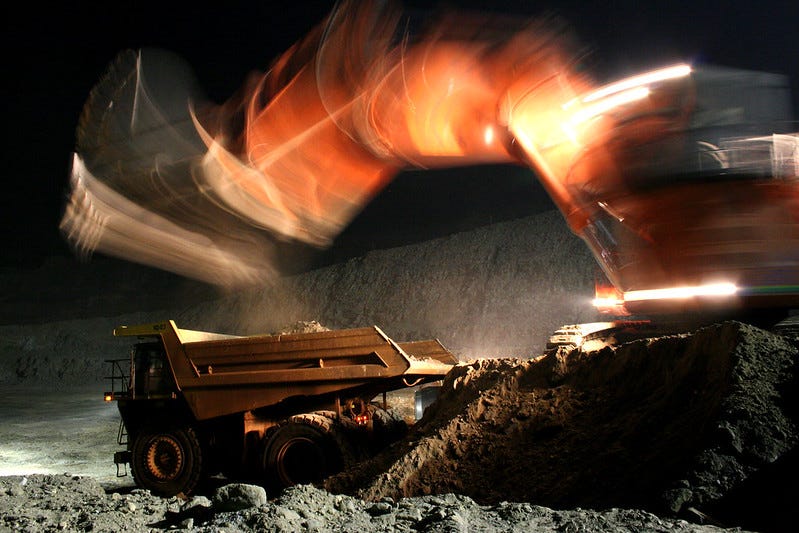Climate technologies require enormous amounts of metal. I’m Ian Morse, and this is Green Rocks, a newsletter that doesn’t want dirty mining to ruin clean energy.
I had a lot of fun writing the year’s first two essays: Mines are not just holes in the ground and The delicate tangle with the black box of solar.
This week is a round-up for important news in mining for clean energy. There’s a lot of ground to cover, so let’s dig in.
(If you like this newsletter, I would immensely appreciate keeping it afloat with a few more paid subscriptions!)
Monday was the second anniversary of the tailings dam collapse in Brumadinho, Brazil, which killed 270 people. Blame has been thrown on Vale and contractors for failing to act on the signs that the dam was unstable, but federal police are still waiting for a key forensic report that could lead to convictions.
Vale, the company that owned the dam, failed again last week to agree to a recovery deal with the state where it occurred, Minas Gerais. The state is requesting Vale pay far more than it has agreed to pay to compensate families and restore land.
Mining companies agreed last August to create standards for tailings dams, but thousands of abandoned and active tailings dams are still unable to demonstrate that they can be safe, according to the Responsible Mining Foundation.
Additionally, satellite data suggests the dam collapse could have been predicted a few weeks beforehand, according to a study out this month.
In one of the first Green Rocks editions, I wrote about the theories that explain how rare earths came to be concentrated on the seafloor near a Japanese island. Japan plans to commercialize those deposits by 2028.
Climate goes metal
Pensana Rare Earths wants to be Europe’s first processing plant for rare earth elements, a notoriously toxic business. Led by a former uranium mine executive, it’s aiming to take materials from a mine in Angola and extract neodymium and praseodymium at a factory in England.
A UK copper miner has settled a complaint filed by 2,500 Zambian villagers who alleged that toxic discharge led to health impacts for hundreds of children and impacted their fishing and farming. The company still denies wrongdoing.
The US government, under a new president, will convert the federal fleet into electric vehicles.


Before leaving office, Trump eased sanctions on Dan Gertler, an Israeli billionaire tied to corruption and abusive mining practices in the Democratic Republic of Congo.
Zambia sealed a deal to buy back a copper mine inside its borders from Swiss miner Glencore.
In Europe, costs for recycling batteries may shrink enough for it to be profitable by 2025, according to one report.
One of the worst mining polluters is launching a financial tool “to invest in precious metals that are going to be crucial in the transition to a net-zero carbon economy.”
A judge denied a request to halt the land swap deal for the Resolution Copper mine in Arizona.


A British miner has finalized a deal to develop what it calls the largest battery-grade nickel sulphide deposit, which is in Tanzania.
A Chilean court upheld an indigenous complaint about a BHP copper mine’s water use, part of a five-year court battle in which locals allege the company didn’t listen to warnings about overdrawing water and degradation to local wetlands.
A Swiss court sentenced billionaire Beny Steinmetz to five years in prison for bribery in Guinea to operate an iron ore mine. Steinmetz returned to his native Israel before Switzerland could put him in jail.


Cornish Lithium produced the UK’s first batch of battery-grade lithium.
The US gave the final approval the Thacker Pass lithium project in Nevada, owned by Canadian company Lithium Americas.
Panasonic and Tesla plan to create a “cobalt-free, high energy-density” battery cell in a few years.
Mine workers in Zimbabwe are demanding wage allowances to buffer the impacts of the pandemic after the country determined mining was an essential service.
Reads
≠ endorsement
Ignored and invisible: The burden of mining on women (Mongabay India)
Family men or forest destroyers? Meet the miners living off the Amazon's gold (Thomson Reuters Foundation)
Inside lithium giant SQM's struggle to win over indigenous communities in Chile's Atacama (Reuters)
Environmental assassinations bad for business, new research shows (Mongabay)


Pandemic accelerates mining tech investment (Financial Times)
The Problem With Tesla (Bitterroot)
In search of Greenland’s rare earths (The Economist)
Pompeo: Time for a Responsible Clean Energy Supply Chain (Foreign Policy)
All the mines Tesla needs to build 20 million cars a year (Mining.com)
Thanks for reading! I’m Ian Morse, and this is Green Rocks, a newsletter that doesn’t want dirty mining to ruin clean energy.
These topics are relevant to anyone who consumes energy. If you know someone like that, pass this along!








